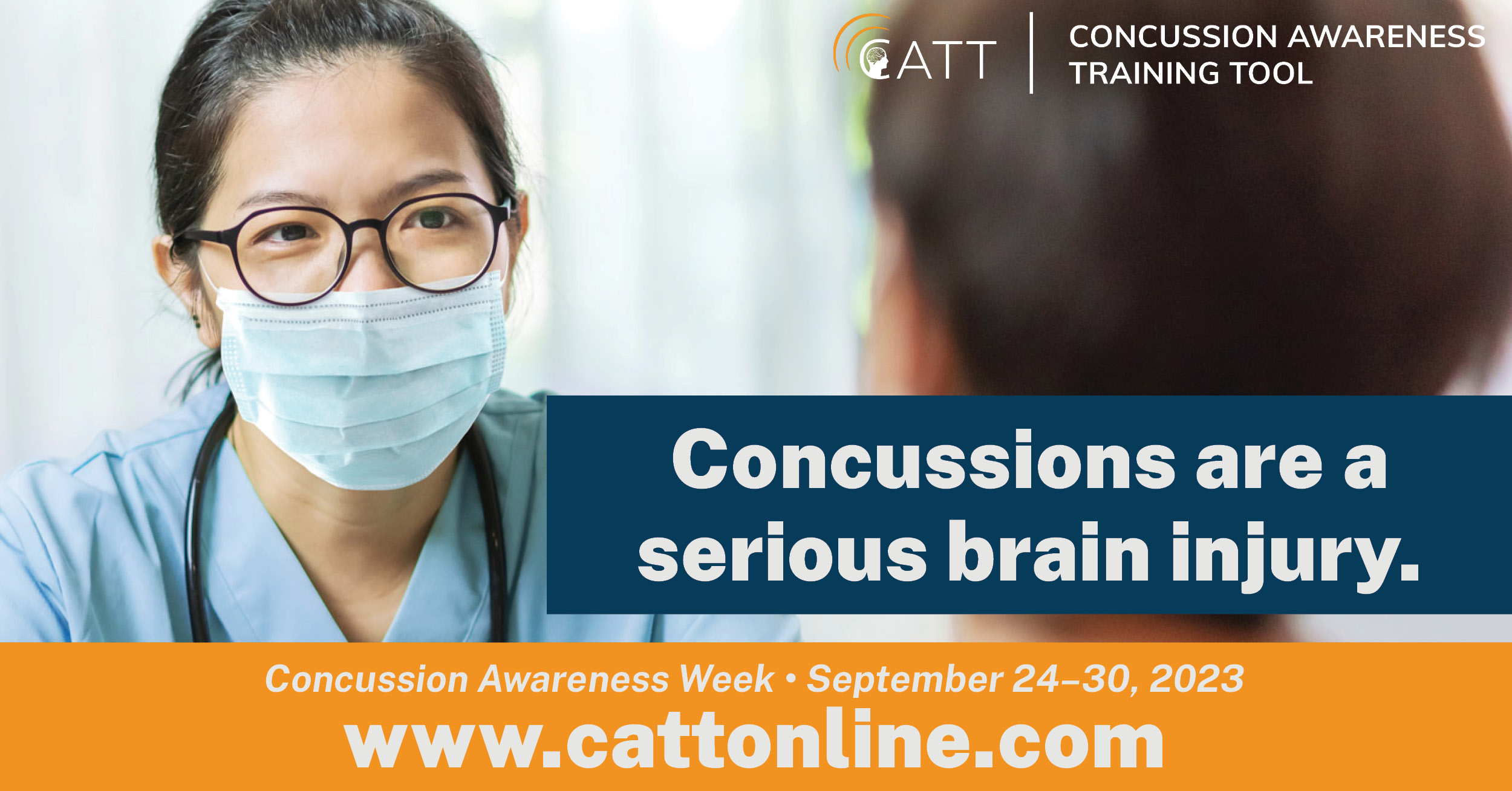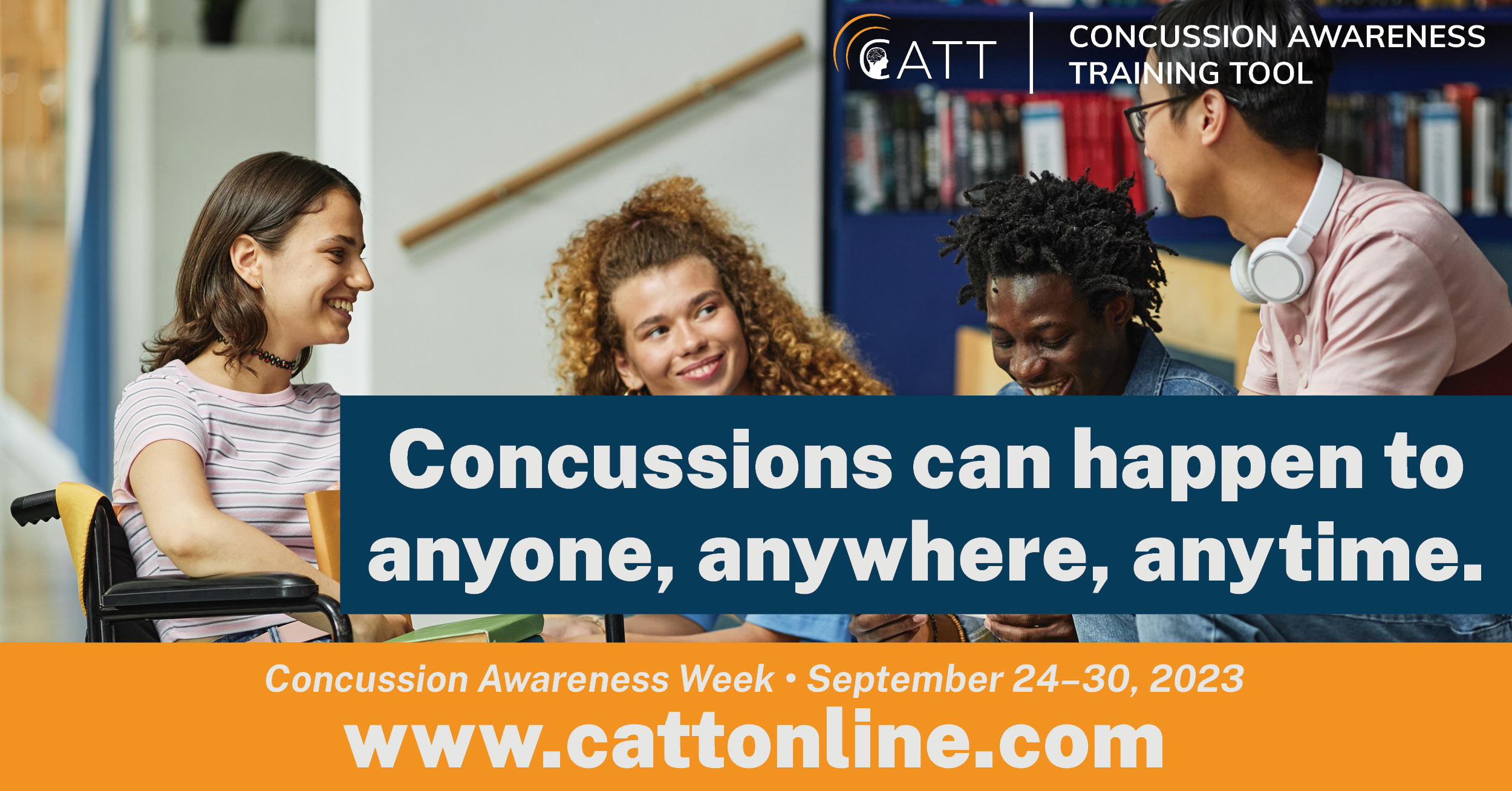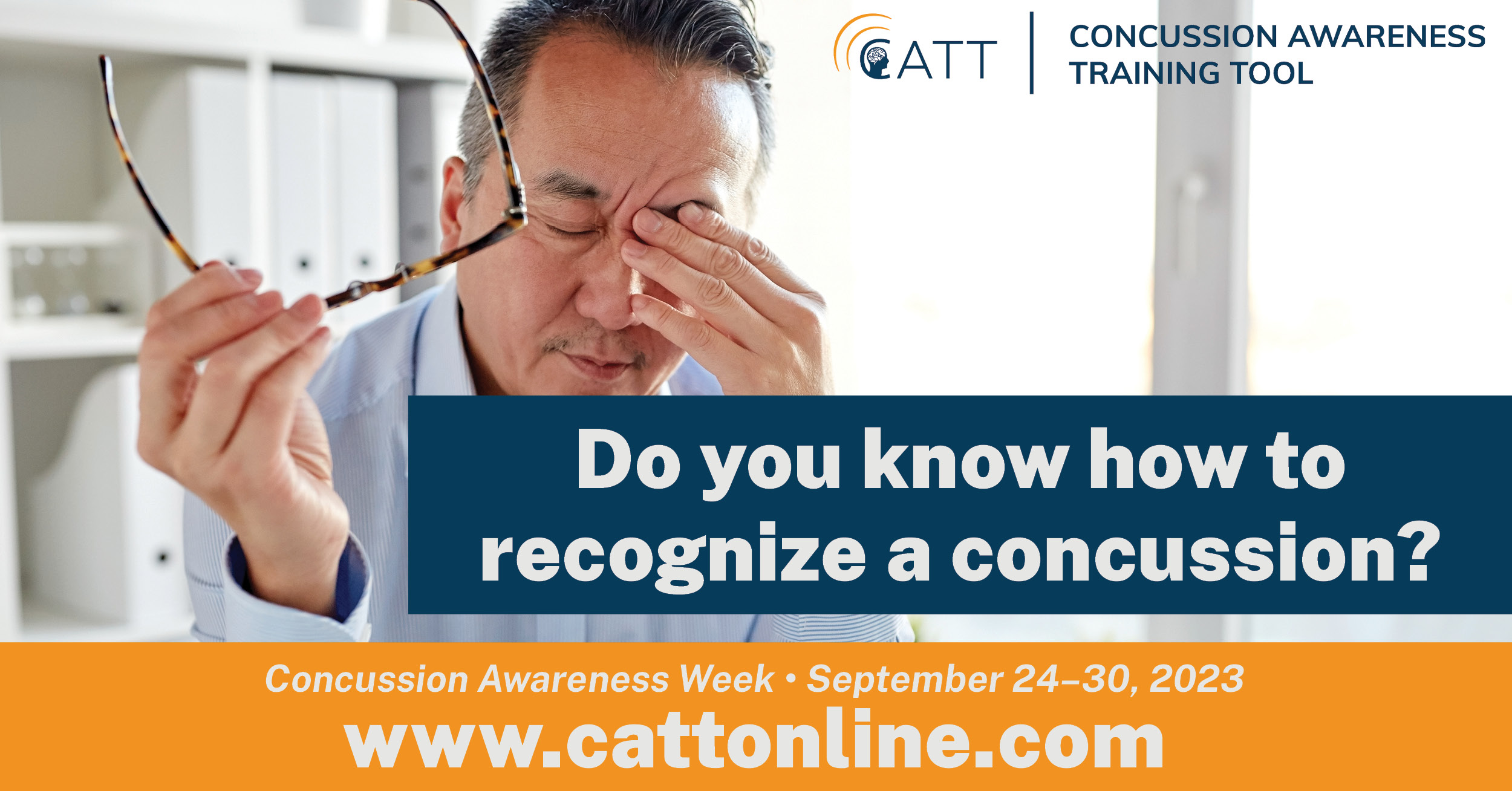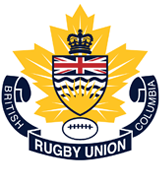September 24 to 30, 2023, is Concussion Awareness Week in BC, coinciding with Rowan’s Law Day on Wednesday, September 27.
In 2013, Rowan Stringer, a high school Rugby player from Ottawa, died tragically of Second Impact Syndrome, having suffered multiple concussions within a short space of time whilst playing Rugby. In her memory, Rowan’s Law and Rowan’s Law Day were established to bring awareness to concussions and concussion safety.
Rowan’s Law Day takes place on the last Wednesday of every September and is a day dedicated to raising awareness of the work being done around concussion prevention, management and education in sport.
This week in BC, Concussion Awareness Week aims to improve British Columbians’ knowledge of concussions – how to prevent, recognize, respond to, and manage them appropriately.
Below is a list of resources designed to help educate, manage and prevent concussions in the Rugby community and wider community.
WHAT IS CONCUSSION?
A concussion is a serious brain injury that can happen to anyone, anywhere, anytime – not just on a Rugby field. Concussions do not require a blow to the head or loss of consciousness to occur.
Use the toggle menu below to learn more:
How does a concussion happen?
Concussion can be caused by a direct blow to the head, but can also occur in whiplash type injuries, where a blow to another body part results in rapid movement to the head. Concussions can happen to anyone at any age. However, children and adolescent athletes are more susceptible to concussion and they take longer to recover from concussion-related injuries.
Although they often resolve without medical intervention, concussions result in significant costs to individuals and their families, recreation and sport organizations, schools, employers, and society at large, including the healthcare system. In BC, the estimated healthcare costs of concussion in 2019 were approximately $16.3 million in emergency department visits, $15.6 million in hospitalizations, and $21.7 million in disability. However, these costs are an underestimate as concussions are underreported. Costs incurred by patients seen at doctor’s offices, walk in clinics, or treated at home are not included in these estimates. The Government of British Columbia agrees that this is an important issue worthy of attention and investment, as declared in its proclamation.
Early recognition of concussion, proper follow up care by a healthcare professional with relevant training, and appropriate management make a difference in recovery. British Columbians need to be prepared, just in case. They need simple, easy-to-follow steps on how to care for a concussion or where to find good information.
Know the Signs and Symptoms
If any of the following signs or symptoms are present following an injury the player should be suspected of having a concussion and immediately removed from play or training.
Any one or more of the following visual clues indicate a concussion:
- Dazed, blank or vacant look
- Lying motionless on ground/slow to get up
- Unsteady on feet/balance problems or falling over/incoordination
- Loss of consciousness or responsiveness
- Confused/not aware of plays or events
- Grabbing/clutching of head
- Seizure (fits)
- More emotional/irritable than normal for that person
Presence of any one or more of the following signs and symptoms may suggest a concussion:
- Headache
- Dizziness
- Mental clouding, confusion or feeling slowed down
- Visual problems
- Nausea or vomiting
- Fatigue
- Drowsiness/feeling like ‘in a fog’/difficultly concentrating
- ‘Pressure in head’
- Sensitivity to light or noise
Take Action in Education
BC Rugby’s number one priority is player safety and adheres to World Rugby’s policy of ‘Recognise and Remove’ when dealing with concussions or suspected concussions. Any player suspected or suffering from concussion should be immediately removed from the training session or match, and not permitted to return until they have completed a full Return to Play Protocol and cleared by a physician.
If in doubt, sit them out.
Anyone on or around the Rugby pitch has a responsibility to be aware of the symptoms of concussion and are encouraged to annually complete World Rugby’s online Concussion Management module to learn more. Further concussion guidance can be found here.
We also strongly encourage parents, guardians, partners or housemates of Rugby players to complete the online module to stay informed.
Additionally, you can take World Rugby’s Rugby Ready Course. Everybody involved in organising and playing Rugby has a duty of care in relation to the players. The Rugby Ready program is intended to raise awareness of good practice and help stakeholders manage the inherent risks of a contact sport by putting appropriate safeguards in place.
CONCUSSION AWARENESS TRAINING TOOL
The Concussion Awareness Training Tool (CATT) is a series of online educational modules and resources addressing concussion recognition, diagnosis, treatment, and management. Good concussion management may decrease the risk of brain damage and potentially reduce long-term health issues.
Learn more by clicking on the toggle menu below:
About CATT
Developed by Dr. Shelina Babul (Associate Director/ Sports Injury Specialist with the BC Injury Research and Prevention Unit, BC Children’s Hospital), CATT is based upon the established principles of the Consensus Statement on Concussion in Sport and other evidence-based resources. CATT is also a part of the Concussion Harmonization Project, a federal initiative to increase the prevention, recognition, and treatment of concussions in Canada.
Research and evidence on concussions is evolving and the knowledge base is continually changing. As a result, the CATT website and modules are updated on a regular basis to provide current information, tools, and resources to support concussion recognition, diagnosis, treatment, and management. Currently, CATT is being updated to incorporate recommendations based on the 6th Consensus Statement on Concussion in Sport.
Each month, more than 17,000 people access the information on cattonline.com, and since 2013, the CATT e-learning modules have been completed over 125,000 times by people in more than 200 countries and territories. More than 90 organizations have made it mandatory for their staff and coaches to complete the CATT e-learning modules. There are eight CATT online educational modules. All online educational modules are available in English and French and free-of-charge.
Take the Free Modules
There are eight CATT online educational modules. All online educational modules are available in English and French and free-of-charge:
TACKLESMART & AGE-GRADE GUIDELINES
Earlier this year, Rugby Canada launched the new ‘TackleSmart’ resource, a professional development course and online resource that educates both new and experienced community and high school Rugby Coaches on current tackling laws, techniques, and progressions as well as helps coaches working with athletes who are new to contact. The goal of this training is to prevent injury in the tackle by giving coaches the competence and confidence to coach the tackle and progress effectively to contact.
The TackleSmart manual was created to be part of Rugby Canada’s PlaySmart resources, a player welfare program that aims to educate players, parents, coaches, match officials and administrators on safety in rugby across Canada. The PlaySmart program was implemented in 2016, and recommends that everyone involved at all levels of the game complete the ‘World Rugby Rugby Ready’ and ‘World Rugby Concussion Management for the General Public’ online learning modules.
Rugby Canada has also developed the Age Grade Law Variations documents, a resource developed to ensure that a safe, enjoyable, age-appropriate environment is created at all levels of the community game.
FURTHER RESOURCES
Further resources around concussion and concussion management and education can be found on in BC Rugby’s Resources section here.
Additionally, use the below toggle menu to discover more resources available to better educate and manage concussion:
World Rugby Concussion App
World Rugby has a Concussion App with all the basics of Concussion Management. Download it now from Google Play or the Apple Store.
World Rugby Concussion Guidance
This World Rugby Concussion Guidance document has been developed to provide guidance and information to persons involved in the non-elite level of the game of Rugby regarding concussion and suspected concussion.
World Rugby Player Welfare
World Rugby’s Player Welfare strategy is to put the player first and to rely on an evidence-based approach for all decisions.
The Player Welfare site has information on the policies and procedures World Rugby use across the sport, whether it’s the surface being played on, the equipment being used or prevention and treatment of injuries. The guidelines cover both playing and medical aspects of the game.
Concussion Protocol Resources for Sports Organizations
The resources on this page will help sport organizations develop and implement evidence-based, best-practice concussion protocols based on the Canadian Guideline on Concussion in Sport. These resources are free to download and use.
HealthLinkBC Concussion Page
Click here to visit HealthLinkBC’s page on concussion and concussion management.
Further Resources
Click on the below links for more information:













